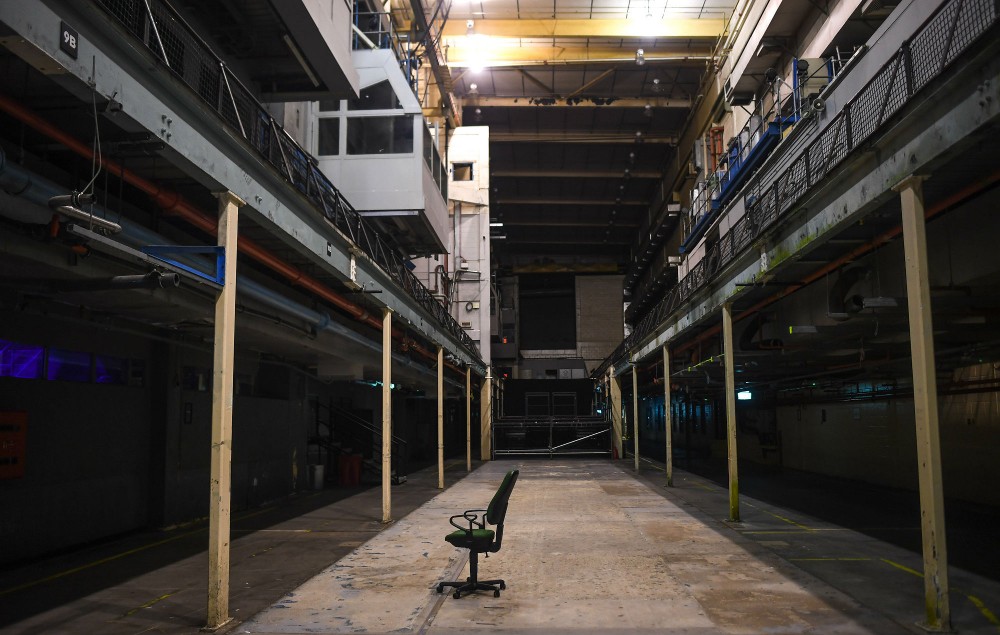UK nightclubs face “extinction” without government support – and here’s how you can help
Nightclubs across the UK have warned that they could lose two thirds of their staff or even face permanent “extinction” unless the government provides urgent support and clarity to help them weather the storm of coronavirus.
While iconic nightclubs such as Fabric in London were among those to celebrate receiving millions from the government’s £1.57billion Cultural Recovery Fund – which has helped save hundreds of venues forced to remain closed due to COVID for months ahead – many more were denied funding and left feeling “culturally insignificant” due to the Arts Council’s rejection.
Night Time Industries Association CEO Michael Kill told NME that they were working with the government to explore future funding as well as ways to reopen clubs safely. He also encouraged music fans to donate to their cause and write to their MP to ask for support using this automated form. Unless something changes soon, hundreds of clubs face immediate danger of being closed forever.
“We are still on course to lose three quarters of the workforce from night time economy venues, and that’s certain if the government comes back with more tiered restrictions like we had before,” Kill told NME. “Our biggest concern at the moment is nightclubs becoming systematically extinct by the government’s ignorance and lack of narrative around the night time economy. That becomes a cultural issue and an economic issue.”

With venues still having to pay rent and standing costs while being forbidden from opening to make any money, two thirds of the 85,000 who work in nightclubs are expected to lose their jobs without urgent action.
“You can’t take it away from the chancellor for extending furlough, but ultimately that only works if you’ve got a business to furlough from,” Kill told NME. “The challenge that we have at the moment is that many of these businesses can’t front the level of debt that they’re exposed to at the moment due to commercial rent, and they’re having to make difficult decisions.
“At what point are we going to see some human consideration for the challenges around people that own these businesses? Some of them have got their houses on this. That’s their livelihood, their kids, their family, everything. They’ve been successful until this point and now they’re exposed to losing everything through no fault of their own. COVID has done this, the government has decided to close them, and successful businesses that were making really good money have just been allowed to dwindle their cash reserves.
Speaking of the importance of clubs and what it would mean to lose them, Kill said: “You have the likes of Deltic Group which have 52 venues and £106million turnover every year. That’s £33million to the exchequer every year gone. Then you’ve got the cultural impact of losing venues like Egg in London and Sub Club in Glasgow – these are globally renowned clubs. Once they’re gone, they’re gone. We can’t get them back. We’re doing what we can to support them, but we’re pressuring the government to offer specific help for them.”
We’ve donated some stuff for @42snightclub in Manchester to help out with their Crowdfunder! Tom’s original hand written lyrics to I Can’t Stand It, his outfit from the Honey Sweet music video + much more! Head over to their page to bid! https://t.co/INzD2m5HZg pic.twitter.com/tXZEEpWz8B
— B L O S S O M S (@BlossomsBand) November 17, 2020
One of the most beloved clubs under threat is 42nd Street in Manchester, known to regulars as 42s. Located on Bootle St, the late-night indie venue is known for championing bands such as Oasis, The Libertines and The Strokes since opening back in 1990, as well as iconic Manchester groups like The Smiths, Joy Division and Stone Roses.
Former patrons include Courteeners (who famously wrote their hit single ‘Not Nineteen Forever‘ about the club) and Blossoms, who came out earlier this week to raffle off a number of personal items in support. The #Save42s crowdfunder page warns that it’s at risk of “closing forever”.
“It’s been a nightmare. We’ve not had any regular income since March, very little support beyond the furlough scheme and no opportunity to plan for anything,” 42s general manager Simon Jackson told NME. “We’ve been unable to secure any rent assistance from our landlord. All of the bills are due but we’ve got no money coming in. We’re just not deemed viable at the moment – despite running a good business for 20 years. We’re a very successful club and we were setting up for a very good year, then it all came crashing down.”
He continued: “Without an injection of cash, we’re not going to survive long into the new year. Our rainy day funds for paying the bills are dwindling rapidly. Unless the crowdfunder works or we get some support from the council or government, then it’s goodbye. It’s as simple as that, we can’t go on.”
Having attempted to operate under COVID restrictions such as the 10pm curfew before the second lockdown came in, Jackson said the future looked bleak for 42s without clearer and more sympathetic guidelines from the government.
“If we could open, then we would bounce back pretty quickly,” he said. “We rely on the students in Manchester, and they’re not having a great time at the moment. We’ve lost out on that year of creating a following of the next bunch of students. Show us when there might be an end in sight and give us something to plan towards. At the moment we can’t plan the next day. We’ve been absolutely dumped in it. We’ve done all the COVID stuff we can and followed what little guidelines there are and doing out best to muddle through.”
Speaking of what it would mean if Manchester were to lose the club, Jackson added: “A nightclub is the line-up that every festival wishes they had, but every night. People can get on that dancefloor, close their eyes and let loose. We’re a rite of passage for Manchester students. This is where people discover new music and make their best friends.
“When I started going out in Manchester, there were quite a few indie and alternative clubs in Manchester. Now we’re probably the last ones surviving. A lot of other clubs have switched to other genres, but we’ve stuck with it. It would be a travesty if we were to disappear.”
Sub Club in Glasgow meanwhile, is known as one of the best venues in the world for electronic music. Earlier this year, they successfully raised nearly £200,000 through Crowdfunding to keep afloat. However, manager Michael Grieve feared for what the future may hold with clubs unlikely to reopen any time soon without clear guidance from the government.
“Nothing will change in the next couple of months,” he told NME. “Things are going in the wrong direction. I don’t anticipate that we’ll be open for April or May. I certainly don’t anticipate that we’ll be open and trading normally this side of the summer.”
As for his hopes for the future, Grieve said: “As an industry, we’re continuing to lobby all four governments to show that there is a cultural significance to what we do. It’s come a surprise to a lot of people in government that people actually consider nightclubs to be important.
“Most politicians think of nightclubs as their bleary-eyed memories of going to the student union and seeing how many pints you can neck in a couple of hours, and there’s not a huge recognition of how culturally significant the UK club scene is – never mind the broader electronic music scene. That’s genuinely world-leading, as opposed to a lot of the things the government wants you to believe are world-leading.”
He added: “Because Sub Club have been at it since the mid ‘80s, we’ve been important to successive generations of young people as they transition into adulthood and beyond. Ours is the club that people keep coming to. We’ve always been focussed on pushing musical boundaries, bringing in new talent, and a genuine interest in the quality of our output, rather than just getting bodies through the door and trying to make as much money as possible. We need to be here.”
Responding to the nightlife’s scenes concerns, a government spokesperson for the Department for Digital, Culture, Media and Sport told NME that they were working hard with the sector to secure a safe future.
“We are making the biggest ever one-off investment in the cultural sector through our unprecedented £1.57billion Culture Recovery Fund which has benefitted nightclubs including Ministry of Sound, Motion in Bristol, and Night People in Manchester,” a spokesperson told NME.
“Pubs, clubs and grassroots venues are the heartbeat of our vibrant night time economy and we are continuing to work closely with the Night Time Industries Association and medical experts to develop advice and guidance so that nightclubs can reopen when it’s safe to do so.”
For more information on the #SaveNightLife and #LetUsDance campaign, visit here.
Meanwhile, The Music Venue Trust have launched a new campaign to save 30 UK grassroots venues still in danger of being lost forever in the wake of coronavirus restrictions. See the full list and how you can help here.
